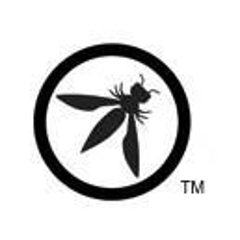URL Classifier 
Declarative syntax for defining sets of URLs. No need for error-prone regexs.
Usage (javadoc)
// Classes are all defined under org.owasp.url
import org.owasp.url.*;
class C {
/** We define a classifier with a declarative syntax */
static final UrlClassifier CLASSIFIER = UrlClassifiers.builder()
// We want to allow HTTP and HTTPS for this example
.scheme(BuiltinScheme.HTTP, BuiltinScheme.HTTPS)
.authority(
AuthorityClassifiers.builder()
// We whitelist some subdomains of hosts we trust.
.host("**.example.com", "**.example.net")
.build())
// We allow access to .html files
.pathGlob("**.html")
.build();
void f() {
// At runtime, we build a URL value.
// Pass in a UrlContext if you know the base URL.
UrlValue url = UrlValue.from("http://example.com/");
Classification c = CLASSIFIER.apply(
url,
// If we want an explanation of why classification failed
// we can connect diagnostics to our logs.
Diagnostic.Receiver.NULL);
// We can switch on the result.
switch (c) {
case MATCH:
// ...
System.out.println(url.urlText);
break;
case NOT_A_MATCH:
// ...
break;
case INVALID:
// ...
break;
}
}
}
In Bazel
To use in maven, just add to your WORKSPACE:
# In WORKSPACE
maven_jar(
name = "org_owasp_url",
artifact = "org.owasp:url:1.2.4",
sha1 = "f79cace2e811092dff78bc03b520eade0d675d33")
Then in a BUILD you can use it thus:
# In BUILD
java_library(
name = ...,
deps = [
"@org_owasp_url//jar",
# ...
],
)
In your WORKSPACE, you can replace the artifact version with one chosen from Maven Central.
You can check the hash by copying the jar link for the version you want and adding .sha1 to the end.
Alternatively, you can use any of the release ZIP files with http_archive thus:
# In WORKSPACE
http_archive(
name = "org_owasp_url",
url = "https://github.com/OWASP/url-classifier/archive/v1.2.4.zip",
sha256 = "0019dfc4b32d63c1392aa264aed2253c1e0c2fb09216f8e2cc269bbfb8bb49b5")
In Maven
Add
<dependency>
<groupId>org.owasp</groupId>
<artifactId>url</artifactId>
<version>1.2.3</version>
</dependency>
to your POM's <dependencies> or <dependencyManagement> section.
Invalid URLs
A UrlClassifier returns MATCH for some URLs and NOT_A_MATCH for others, but it can also return INVALID. An INVALID URL is one that
- Is not syntactically valid per specifications and which is not coerced consistently to a valid URL by tolerant parsers.
http:/foois invalid. Although it is syntactically valid according to STD 66, it is missing a host required by RFC 7230 which defines thehttpprotocol.
http://例/is valid even though it is rejected by a strict interpretation of STD 66 because there is a widely & consistently implemented way of handling non-ASCII characters in host names. - Or is valid per specifications, but is not consistently handled by implementations, and/or has negative security consequences in many implementations.
For example,http://example.com/../../../../etc/passwdis equivalent tohttp://example.com/etc/passwdper the specification but has been used in directory traversal attacks).
There are several corner cases that are rejected as INVALID by default.
If you need to treat one or more as valid, you can tell your UrlClassifier to tolerate them thus:
import static org.owasp.url.UrlValue.CornerCase.*;
{
UrlClassifiers.builder()
// Allow too many ..
.tolerate(PATH_SIMPLIFICATION_REACHES_ROOT_PARENT)
// More policy here ...
.build();
// Alternatively, if we're triggering this particular corner case
// because the default context doesn't capture our application path
// we can use a different context when classifying UrlValues.
UrlContext context = UrlContext.DEFAULT.withContextUrl(
"http://example.com/foo/bar/baz/");
}
Diagnostics
Sometimes its nice to know which URLs do not match a classifier and why.
You can tie UrlClassifiers into your logging framework by implementing a Diagnostic.Receiver.
Classification classifyNoisily(UrlClassifier c, UrlValue x) {
return c.apply(
x,
(d, v) -> { System.err.println(v + " did not match due to " + d); }
// Use your favorite logging framework instead of System.err.
);
}
Classification classifyNoisilyOldStyle(UrlClassifier c, UrlValue x) {
// Old style anonymous class.
Diagnostic.Receiver<UrlValue> r = new Diagnostic.Receiver<UrlValue>() {
@Override public void note(Diagnostic d, UrlValue x) {
System.err.println(x + " did not match due to " + d);
}
};
return c.apply(x, r);
}
Problem
Matching URLs with regular expressions is hard. Even experienced programmers who are familiar with the URL spec produce patterns like /http:\/\/example.com/ which spuriously matches unintended URLs:
http://example.com.evil.com/http://example.com@evil.com/http://example_com/javascript:alert(1)//http://example.com
while failing to match simple variants that probably should:
HTTP://example.com/which uses a ucase schemehttp://EXAMPLE.com/which uses a ucase hostnamehttps://example.com/which uses a scheme that is equivalent for most intents and purposes.
A common "fix" for that example, /^https?:\/\/example\.com\//i, spuriously fails to match other variants:
http://example.com./which use a trailing dot to disable DNS suffix searchinghttp://example.com:80/which makes the port explicit
Epicycles can be added to a regex to work around problems as they're found but there is a tradeoff between correctness and readability/maintainability.
There are similar hazards when trying to constrain other parts of the URL like the paths. /^(?:https?:\/\/example\.com)?\/foo\/.*/ looks like it should match only URLs that have a path under /foo/ but spuriously matches
http://example.com/foo/../../../../etc/passed
which, used in the wrong context, can cause problems
Simplifying Assumptions
UTF-8 centric
We assume all %-sequences outside data or blob content can be decoded into UTF-8 and mark as invalid any inputs that include code-unit sequences that are not valid UTF-8 or that are not minimally encoded.
Empty domain search list
We assume that all hostnames are complete. For example, http://www/ might actually resolve to http://www.myorganization.org/ after the domain search list is applied. We can't do this and have stable predicates that do not depend on external services and that do not potentially leak information about servers inside a firewall to anyone outside the firewall who can specify a partial URL.
